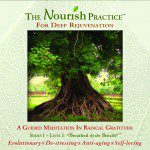Contributing Writer for Wake Up World
“Arrogance is founded in weakness and feeds on insecurity.”
Arrogance is marked by defensiveness, denial, entitlement, insecurity, and even violence. Arrogance is to “have or reveal an exaggerated sense of one’s own importance or abilities.” Needless to say, such posturing poses problems in relationships, and to feeling equally important and valuable.
In order for arrogance to have a chance at being tamed, it needs to be recognized, even expressed, preferably without the violence. Only by expressing my arrogance can I learn how I am exaggerated, or flat out wrong, and thereby stand the chance to become more humble, which allows me to see reality more clearly.
[pro_ad_display_adzone id=”110028″]
But in my experience, much of humility comes by way of being humbled, as opposed to trying to be humble. When I can hear another’s point of view and be open to finding truth in it, I get to change my mind and heart for the better, which is more in accord with the truth, with reality. I may not find truth in it, but at least I have taken an honest look.
Yet to find truth in what another says, I have to be honest with myself. What can help me be honest, or humble, is if I engage with another person who also is willing to be both vulnerable and humble, even if they are also significantly confident or arrogant. So, our own ability to hear our partner, or friend, can inspire them to hear us. Therefore, before we get too bent out of shape at not being heard or regarded, we need to make sure we are doing our part to hear and value our partner. Are we treating them the way we want to be treated?
Humility requires as much emotional flexibility as it does intellectual plasticity. So, if we want truth to deepen in us individually, and between us, both of us would do well to exercise spiritual honesty, which is founded on intellectual and emotional honesty. If only temporarily, we have to let go of our defensiveness, emotional reactivity, and fear of vulnerability—or eventually see through it—which at its core can be a false fear that our dying entitled ego will literally kill us. It won’t. And, you can try this at home.
So, arrogance is not lethal unless it is held unwaveringly. In contrast, unrelenting arrogance is irresponsible and can be abusive. Since we are all defensive, entitled, and in denial about something, we all, to a degree, are arrogant. When our arrogance wavers and is open to self-reflection, correction, and heartfelt examination, we can call it responsible self-confidence. It’s heal-able. This means that I embody my arrogance not with “porous” confidence, with some measure of humility. If I don’t have enough humility already in-hand, I won’t have enough inner strength to recognize my shortcomings. This way, a greater capacity for joy, truth, and love will be lost on me.
Working with Arrogance
Our fate in these matters, therefore, is not just a matter of how much arrogance we have, so much as how many other psycho-spiritual resources we also have. If we crave truth (not just what we want to believe), want love and a fulfilling life (which involves the struggle of dismantling arrogance and defensiveness), if we want to be kind to others (which can involve showing them what hurts), which all require humility and a porous arrogance, then we can allow our humility to temper our arrogance to find more openness, empathy, relaxation, and non-aggressive confidence. This usually means we are comfortable in who and what we are, which the overly arrogant are usually not.
Arrogance diminishes wisdom. ~ Arabian Proverb
While some say arrogance diminishes wisdom, I propose that we can be wise in dealing with our arrogance by recognizing that we need to express it, even if just to ourselves, in order to enlighten and diminish it. So, admit and even express your arrogance, sans the overt violence. Express your strong beliefs. And do it for the willingness to share your truth and to learn more about the truth. This way you can heal and enlighten the narrow entitlement of arrogance—but only if you are genuinely open to seeing your shortcomings and blind spots, which requires emotional resilience.
When trying to resolve conflict with someone you think is arrogant, you might first ask yourself if you are genuinely open to seeing truth in a different point of view. If you aren’t, then you can work with that, as an act of humility and love. Then ask them if they are. If they aren’t, then it might be best not to engage until the underlying reasons for arrogance want to be, and can be, held more loosely. This doesn’t mean you have to believe what another believes, especially if wrong, (nor should you expect to be believed by another) but that you give it an honest and dispassionate consideration. Hearing one another is humility. Not agreeing or believing what is proposed is not necessarily arrogance, as long as we’ve heard it.
No amount of good reason will change the mind of someone who is emotionally attached to an irrational point of view. The attachment is often one of fear, fear of losing one’s identity, sense of worth, work, or sense of meaning. This is why arrogance is so often rooted in emotional insecurity.
Ironically, most arrogance seems to be rooted in existential angst and emotional insecurity, pain and fear. This is why arrogance is most often mitigated through emotional work. So, no amount of reason will shake an arrogant position, unless there is emotional openness. Unfortunately, something often needs to shock and truly humble someone before they get a break into their own psyche. This is why strong boundaries can be helpful for both parties when dealing with unrelenting arrogance, along with communication about why you choose not to engage.
Chances are the arrogant won’t be able to tell you if they are genuinely open to change if they are blinded in self-belief, because they’re not likely humble enough to realize it in the first place! If there is no opening with your partner or friend into relenting their arrogance, and your resultant unmet needs continue, the choice to leave or stay becomes more poignant. But before getting stuck in a false story, which is a form a ignorance or arrogance, try asking. In fact, try lots of approaches, both soft and assertive.
At the end of the day, you have to use your best sense about what’s true and be careful not to transfer your own denial onto the supposed arrogant one. Sometimes we call another person arrogant to remain in our own denial. In other words, we use our own arrogance to justify not hearing what is being shared with us by calling it arrogant. Fun stuff.
False Humility
Again, none of this means we concede our good reason in the face of poor reason. But we can cease to press the issue of our perspective with another who is not open to seeing or giving up their insecure security blanket. Taming our own arrogance does mean that we concede to hearing a truth that is more accurate or true than the one we hold. This is humility in action, which can then posit its truth to the arrogant—either our own selves or another—and ask for a fair hearing.
Early in life I had to choose between honest arrogance and hypocritical humility. I chose the former and have seen no reason to change. ~ Frank Lloyd Wright
Ironically, it also can be arrogant to keep your mouth shut and your opinions to yourself. Doing so can deprive another of truth and being woken up, of being humbled, of coming into more joy, love, and peace. Staying quiet can be false humility, and ironically, arrogance. It’s why trying to be humble often falls short—because it is not an integrated humility that can see paradoxically, that can act opposite to common notions of humility in order to effect humility. Doing so requires wisdom, and wisdom is born from being humbled and paying full attention in heart and mind through tough times. The proverbial wild guru—not the too polite mystic—who plainly reflects your shit to you is an example of paradoxical humility, or humble arrogance. We don’t have to go to India for this; our partner, good friend, or any other source of truth, can be this teacher.
We are all arrogant, to some degree. Some are even arrogant about their humility. So, sometimes being humble means letting go of our false humility, resting in the void of not grasping for an identity, and thereby allowing who we are to emerge from deep below.
Trying to be humble, as opposed to being humbled, is like trying to be happy when you’re really not. Or trying to love someone when you really don’t. Being humbled comes from embracing tough times, being broken down, and going into the trenches to find yourself and the world again. So, express your truth, pray for healing, and work towards it!
One who is unassuming in dealing with people exhibits his arrogance all the more strongly in dealing with things (city, state, society, age, mankind). That is his revenge. ~ Friedrich Nietzsche
When you pervasively shut down your arrogance, or confidence, and try to be humble (which can be helpful at times, for sure, as discerning humility, but not as a pervasive operating principle), this can be dangerous because arrogance stays unconscious, never gets to see the light of day, and therefore never gets to transform. This is false humility. And guaranteed, it expresses itself anyway, such as in the ways we hold ourselves, how well we can listen and empathize with another, and how we treat others, as well as in the ways Nietzsche recognized.
To make a dent in arrogance, then, one has to be willing to do some emotional work, or at least begin with emotional vulnerability, becoming a little more open and less defensive. For this reason, it can also be helpful to create emotional intimacy and security (heart-opening) in order to get through to someone’s head (mind-opening).
Intellectual openness and honesty in relationships often have emotional underpinnings, so both head and heart need to be awakened. With all this said, a little arrogance is human and maybe even helpful. It’s just when it’s overbearing and smothers other gifts of our humanity, and our partners and friends, that it’s an issue.
Following the links in this essay (reprinted below) gives suggestions for how to navigate and embody the territory underlying excessive arrogance, as does this deeply centering and rejuvenating Nourish Practice.
2) How mind and feelings can work in harmony instead of against one another
3) On intellectual and emotional honesty needed for spiritual and interpersonal growth
4) Heartbreak in the context of our global and interpersonal crises
The Nourish Practice
 Jack Adam Weber’s “The Nourish Practice” is an easy, guided meditation-Qi Gong practice in radical gratitude and self-love. It is an Earth-based, body-centered practice — at once physiological and ecological — that is deeply relaxing and replenishing, especially for modern-day burn-out syndrome, and requires little physical effort. It “resets your nervous system” and fosters a rich inner life.
Jack Adam Weber’s “The Nourish Practice” is an easy, guided meditation-Qi Gong practice in radical gratitude and self-love. It is an Earth-based, body-centered practice — at once physiological and ecological — that is deeply relaxing and replenishing, especially for modern-day burn-out syndrome, and requires little physical effort. It “resets your nervous system” and fosters a rich inner life.
You can purchase The Nourish Practice as a CD or Digital Download here.
Previous articles by Jack Adam Weber:
- 11 Reasons Why Hippies (Not Psychos) Should Rule the World
- The Monsanto Years: Singer Neil Young Rips Into GMOs, Big Biz and Conformity
- ReVOLUTION: When Enough is Enough
- Sex – Truth and Dare, Pleasure and Purpose
- Relationships: The Costs of Staying When We Should Leave
- Emotional Work
- Yin Yang — Ancient Wisdom for Personal and Planetary Transformation
- Choosing a Partner – How to Avoid Relationship Suicide
- 11 Crucial Tips for Better Digestive Health
- Heartbreak – Loving Ourselves Through Difficult Times
About the author:
 Jack Adam Weber, L.Ac. is a Chinese medicine physician, author, celebrated poet, organic farmer, and activist for body-centered spirituality. He is also the creator of The Nourish Practice, an Earth-based rejuvenation meditation. Weber is available by phone for medical consultations and life-coaching.
Jack Adam Weber, L.Ac. is a Chinese medicine physician, author, celebrated poet, organic farmer, and activist for body-centered spirituality. He is also the creator of The Nourish Practice, an Earth-based rejuvenation meditation. Weber is available by phone for medical consultations and life-coaching.
You can connect with Jack Adam Weber at:
- Facebook: Facebook.com/JackAdamWeber
- Twitter: Twitter.com/JackAdamWeber
- Email: [email protected]
[pro_ad_display_adzone id=”110027″]









